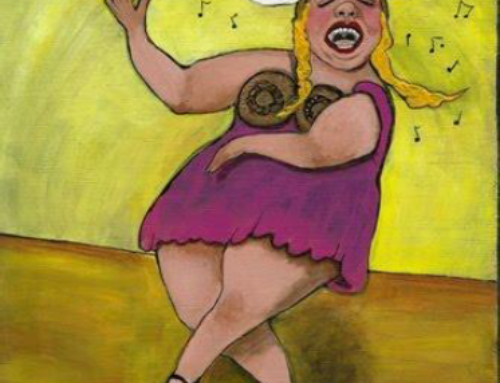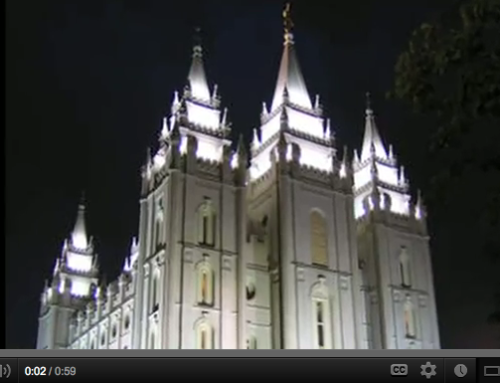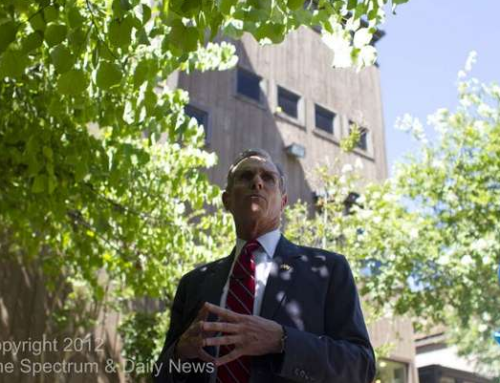
For link to article, Click Here
GAY REPUBLICAN WEIGHS RUN FOR PRESIDENT
By Lou Chibbaro Jr
Meet Fred Karger
Sunday
5 to 8 p.m.
Duplex Diner
18th and U streets, N.W.
A longtime GOP political operative who is credited with helping to develop the political attack ads that sunk the 1988 presidential campaign of Democrat Michael Dukakis says he’s seriously considering running for president in 2012 as an openly gay Republican.
Laguna Beach, Calif., resident Fred Karger, 60, has formed a presidential campaign exploratory committee and is “testing the waters” by campaigning in Iowa and New Hampshire, the first two states to hold a presidential nominating caucus or primary.
“My thirty-five years of experience as a fighter in politics places me in a unique position to run,” Karger said in an April news conference when he announced his interest in running for president.
“I have worked on nine presidential campaigns. This would be my tenth,” he said. “I have managed dozens of other campaigns all over the country, and would bring that wealth of experience to my own candidacy.”
Should Karger officially declare his candidacy, his status as an out gay presidential contender is likely to pose a dilemma for many gay activists aligned with both the Republican and Democratic parties.
In his campaign literature he makes it clear he would be a strong and vocal advocate for the entire LGBT movement’s agenda. Among other things, he favors same-sex marriage equality, passage of a congressional non-discrimination bill for LGBT people, and repeal of both the ‘Don’t Ask, Don’t Tell’ law and the anti-gay Defense of Marriage Act, which bars the federal government from recognizing same-sex marriages.
But for years, before coming out as gay, Karger helped Republicans – some who opposed LGBT-related legislation — win elections as a behind-the-scenes operative with the Dolphin Group, a California-based GOP campaign consulting firm. The firm specialized in creating negative TV ads targeting Democrats.
In 1986, Karger played a key role in a media campaign targeting three liberal California judges by lining up grieving parents whose children were murdered by death row inmates, according to a report by the Sacramento Bee. The three judges, who had a record of overturning death sentences, lost their re-election bids under California’s system of electing judges, with the campaign orchestrated by Karger and his firm being credited for their defeat.
Two years later, in the midst of the 1988 presidential election, Karger worked with the campaign of then Vice President George H.W. Bush to develop the now famous “Willie Horton” campaign against Democratic challenger Michael Dukakis, the then governor of Massachusetts.
Sacramento Bee senior editor Dan Morain reported in a profile of Karger earlier this year that Karger lined up family members of victims of Horton, a convicted murderer who committed a rape while released on furlough from the Massachusetts prison system during Dukakis’s tenure as governor.
“Karger used the Horton story to help to thwart Dukakis’ presidential bid and elect George H.W. Bush,” Morain wrote in his profile.
Karger says he remained deep in the closet during those years. Although he considers himself a moderate Rockefeller-style Republican, he acknowledges his work helped elect conservative Republicans across the country, including President Ronald Reagan.
Now he says he’s poised to become an outspoken advocate for LGBT causes through the national platform of a presidential campaign.
Karger became involved in gay rights causes in 2006 following his retirement from the political consulting business. And when anti-gay leaders launched their campaign to kill California’s same-sex marriage law in 2008 through Proposition 8, Karger jumped head first into the fray — this time on the side of LGBT advocacy groups that opposed the marriage ballot measure.
Using his skills as a campaign organizer, Karger pored over campaign finance records for the committee leading the campaign in favor of Prop 8 and discovered huge amounts of campaign funds for the committee came from people with links to the Mormon Church.
He quickly founded Californians Against Hate, an independent group that waged a media campaign disclosing what Karger called a clandestine effort by the Mormon Church to bankroll Prop 8 and other campaigns across the country opposing same-sex marriage and LGBT rights legislation.
Among Karger’s targets was the anti-gay National Organization for Marriage, which he described as a Mormon front group aimed at killing same-sex marriage through ballot measures in California, Maine and other states.
Although voters approved Prop 8 and the Maine ballot measure, Karger has been credited with forcing NOM to spend large sums of money to fight off campaign finance investigations and complaints initiated by Californians Against Hate before governmental bodies that monitor campaign financing.
NOM leaders denied Karger’s allegations during the Prop 8 campaign and later subpoenaed him to testify in proceedings called to determine whether NOM was required to disclose the names of its contributors. Karger called the subpoenas an attempt to intimidate him.
Like all of the well-known prospective GOP presidential candidates, such as former Massachusetts Gov. Mitt Romney, former House Speaker Newt Gingrich, and 2008 vice presidential candidate Sarah Palin, Karger has yet to officially declare his candidacy. Due to Federal Election Commission rules, he – like the others – must walk a fine line between expressing interest in running and saying openly that he will run.
However, Karger has appeared many times this year in Iowa and New Hampshire. Last month, he ran a TV commercial on New Hampshire’s largest television station introducing himself as a possible GOP candidate.
His immediate strategy, he says, is to build up enough name recognition to gain access to the GOP presidential debates and forums in Iowa and New Hampshire, where he would be observed by a nationwide TV audience alongside the better-known candidates.
An official with the New Hampshire Republican Party said TV stations and civic groups in the state historically have used their sole discretion in choosing which candidates to invite to appear in debates during the presidential primaries. An independent bipartisan commission determines which candidates to invite for presidential debates in the general election, but no such body exists for the primaries and caucuses.
Karger compares his possible run for the presidency to the 1972 presidential candidacy of Rep. Shirley Chisholm (D-N.Y.), who became the first serious black and female candidate for president.
“Her campaign paved the way for Jesse Jackson’s presidential campaigns in 1984 and 1988, and the election of Barack Obama as our 44th president in 2008,” Karger said.
“Our movement, I think, needs new blood and I think it needs somebody at that level, someone to be in those debates who is openly gay, not just a fierce advocate, someone who has walked the walk,” he said.
“And I will be in those debates. I’m a fighter and I have a strategy and it’s being implemented.”
Christian Berle, deputy executive director of the national LGBT group Log Cabin Republicans, said the group welcomes Karger’s candidacy but could not comment on whether the group would consider endorsing him. Berle noted that Karger is a Log Cabin member.
“His presence in the race will raise the level of discourse on equality issues in the Republican primary,” Berle said. “When Fred joins the Republican debates in Iowa and New Hampshire, he will represent the core conservative principles of individual liberty and freedom for all Americans on which our party was founded.”



